DCUSH semester 1
5.0(3)
Card Sorting
1/183
Earn XP
Description and Tags
Last updated 4:12 PM on 12/13/22
Name | Mastery | Learn | Test | Matching | Spaced | Call with Kai |
|---|
No analytics yet
Send a link to your students to track their progress
184 Terms
1
New cards
protecting legislation guaranteeing civil rights to former slaves
In adopting the Fourteenth Amendment, Congress was primarily concerned with
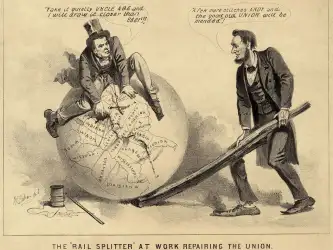
2
New cards
The Union victory in the Civil War led to the ratification of the Thirteenth Amendment.
Which of the following factors contributed most directly to the end of slavery in the United States?
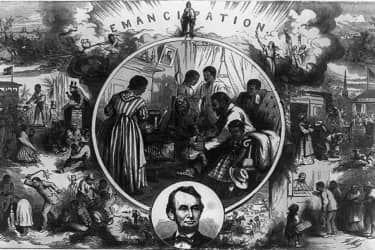
3
New cards
The right for people to own slaves
Members of the American (Know-Nothing) Party of the 1850s typically supported
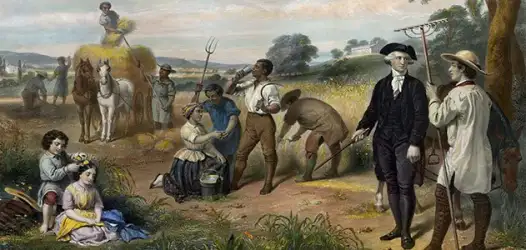
4
New cards
the growing power of poor Southern Whites who resisted planter dominance and sought to abolish slavery
Historians have argued that all of the following were causes of the Civil War EXCEPT
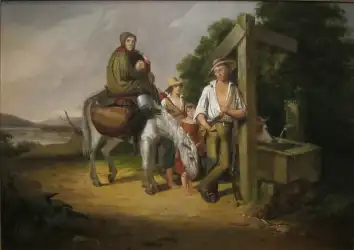
5
New cards
forestalled the possibility of European intervention
The Battle of Antietam, September 17, 1862, is considered pivotal to the outcome of the Civil War because it
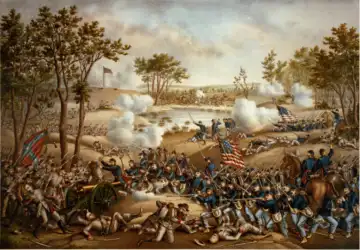
6
New cards
passage of a tougher national fugitive slave act
The most controversial and divisive component of the Compromise of 1850 was the
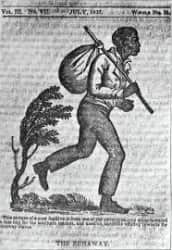
7
New cards
Possession of California and most of the Southwest
The United States gained which of the following from the Treaty of Guadalupe Hidalgo in 1848?
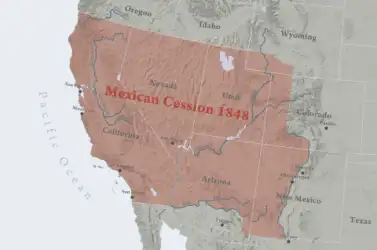
8
New cards
The Mexican-American War incorporated extensive new lands into the United States
Which of the following factors best explains the territorial expansion of slavery in the middle of the nineteenth century?
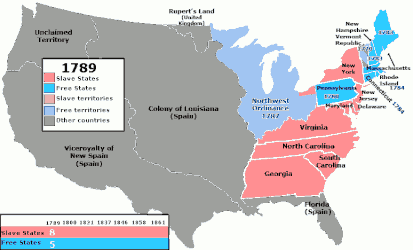
9
New cards
experienced increasing tension over the issue of slavery
A significant result of the Mexican-American War of 1846–1848 was that the United States
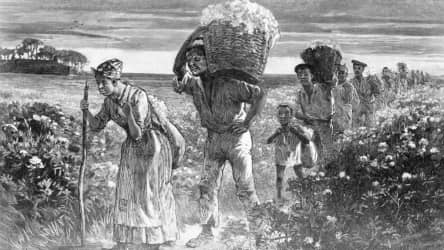
10
New cards
The Spanish developed a race-based caste system that defined the status of Europeans, Native Americans, Africans, and people of mixed race in their colonies
The encomienda and slavery systems both contributed to which of the following developments?
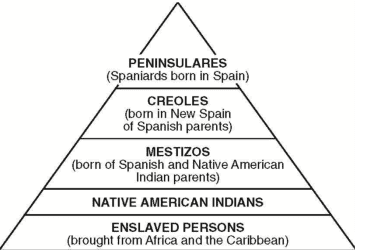
11
New cards
decline of indentured labor
decline in immigration
decline in immigration
By the late 1600s, slavery in North America became institutionalized in part because of the
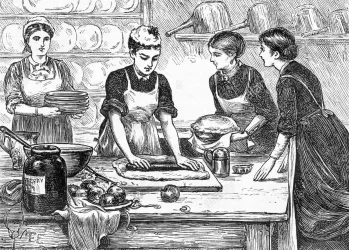
12
New cards
spread of corn cultivation
Before 1492, many American Indian cultures were strongly influenced by the
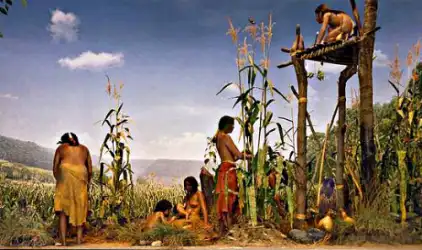
13
New cards
A model community promoting government by strict religious principles
New England Puritans sought primarily to create which of the following in Massachusetts?
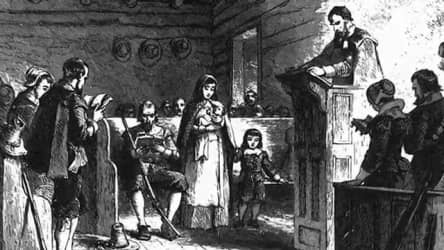
14
New cards
It enabled poor people to seek opportunity in America.
The system of indentured labor used during the Colonial period had which of the following effects?
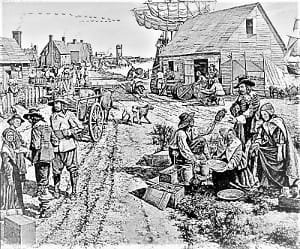
15
New cards
mercantilism
The Navigation Acts were part of the British policy known as
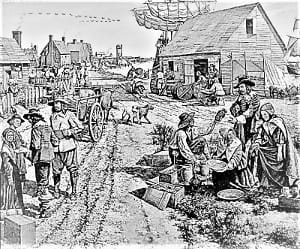
16
New cards
Relations with American Indians and restrictions on the fur trade
Bacon’s Rebellion occurred because of disagreements between frontier settlers and the Virginia governor over which of the following issues?
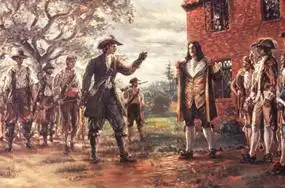
17
New cards
the low price and easy availability of land
In the eighteenth century, British colonists wishing to settle west of the Appalachians were principally motivated by
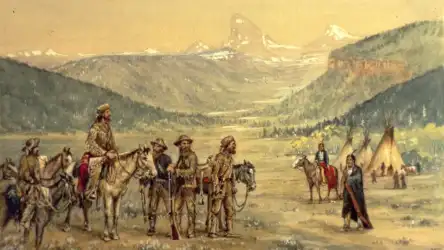
18
New cards
imposition of new taxes on the British North American colonies
A major consequence of the French and Indian War of 1754–1763 was the
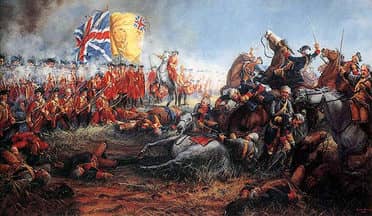
19
New cards
The belief that God had created the world but allowed it to operate through the laws of nature
Which of the following best describes Deism?
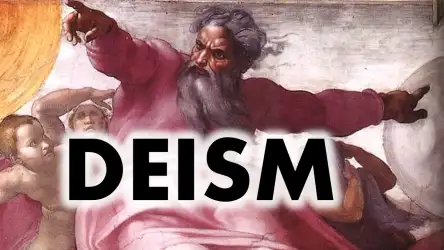
20
New cards
British efforts to protect the East India Company from bankruptcy
The Sons of Liberty initiated the Boston Tea Party in direct response to
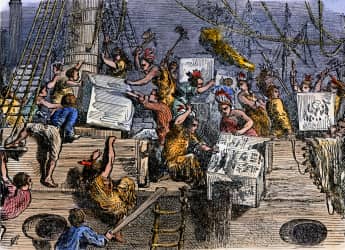
21
New cards
call for the abolition of the slave trade
The Declaration of Independence did all of the following EXCEPT
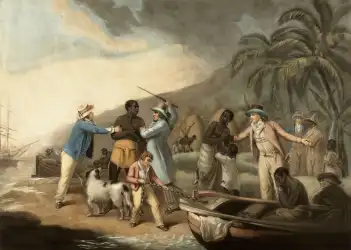
22
New cards
the people
By the time of the American Revolution, most patriots had come to believe that, in republican government, sovereignty was located in
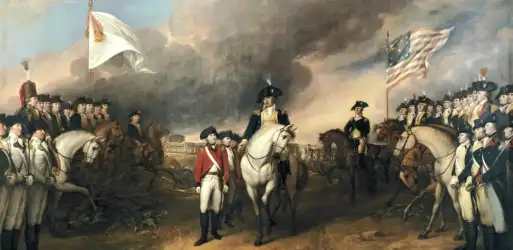
23
New cards
wanted to weaken the British empire
France decided to aid the North American colonies in their war for independence primarily because France
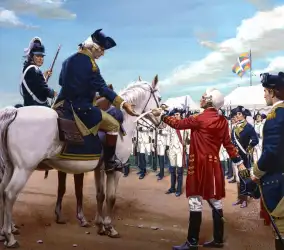
24
New cards
\n provide for statehood for western territories
The government of the Articles of Confederation was successful in resolving the problem of how to
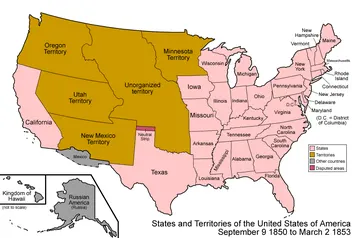
25
New cards
debt-ridden farmers attacked courts in western Massachusetts
Shays’ Rebellion frightened many Americans when
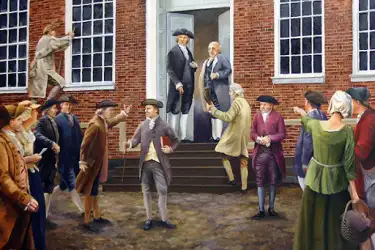
26
New cards
a very weak government
The government under the Articles of Confederation consisted of
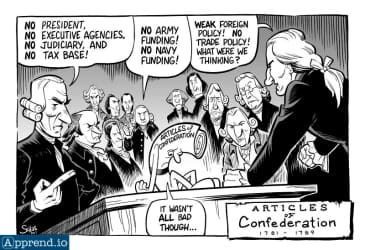
27
New cards
\n to make sure the constitution was ratified
The Federalist papers were written in order to
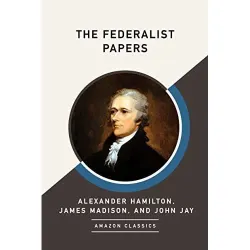
28
New cards
weaken and deflect Republican criticism of the Federalists
The Alien and Sedition Acts were designed to
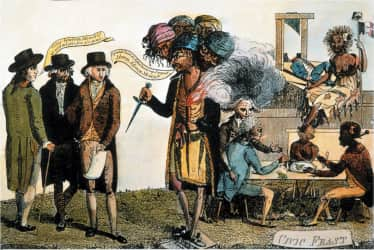
29
New cards
acquire a port to provide for trading purposes
Jefferson’s purchase of Louisiana had its origins in his desire to
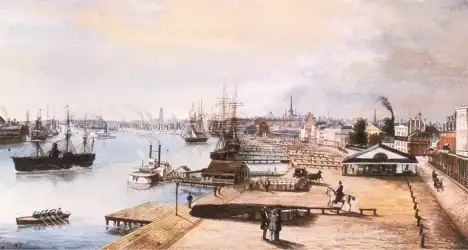
30
New cards
protecting legislation guaranteeing civil rights to former slaves
In adopting the Fourteenth Amendment, Congress was primarily concerned with
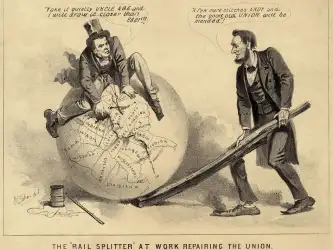
31
New cards
The Mexican-American War incorporated extensive new lands into the United States.
Which of the following factors best explains the territorial expansion of slavery in the middle of the nineteenth century?
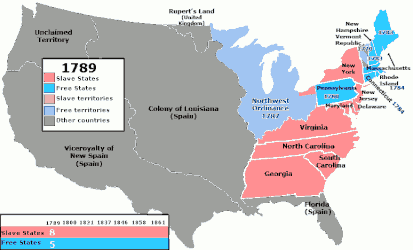
32
New cards
Asserted American independent in the realm of foreign policy.
The issuance of the Monroe Doctrine did which of the following?
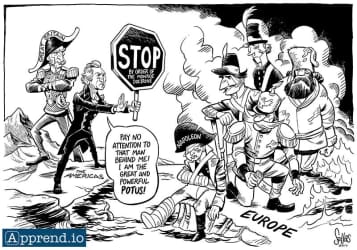
33
New cards
experienced increasing tension over the issue of slavery
A significant result of the Mexican-American War of 1846–1848 was that the United States
34
New cards
prevent France from recapturing the Louisiana Territory
The United States went to war in 1812 for all of the following reasons EXCEPT to
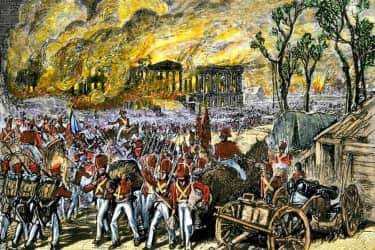
35
New cards
the United States Supreme Court
In the first half of the nineteenth century, Cherokee efforts to retain their tribal lands in Georgia received direct support from
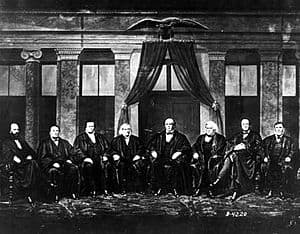
36
New cards
Forcing five different Native American tribes to go to land in the Great Plains
What was the outcome of the Indian Removal Act?
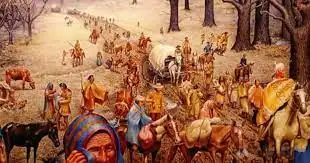
37
New cards
It encouraged American settlement in Texas in the 1820’s and early 1830’s.
Which of the following best describes the policy of the government of Mexico toward Texas?
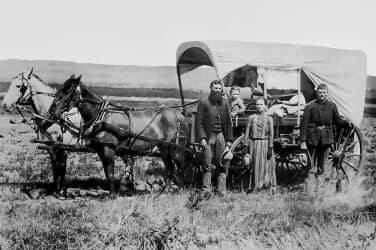
38
New cards
\n Possession of California and most of the Southwest
The United States gained which of the following from the Treaty of Guadalupe Hidalgo in 1848?
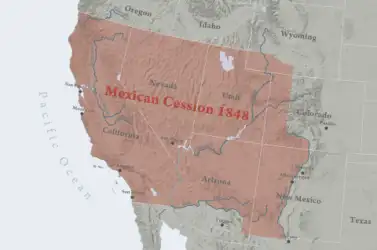
39
New cards
passage of a tougher national fugitive slave act
The most controversial and divisive component of the Compromise of 1850 was the
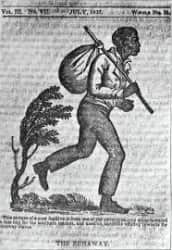
40
New cards
forestalled the possibility of European intervention
The Battle of Antietam, September 17, 1862, is considered pivotal to the outcome of the Civil War because it
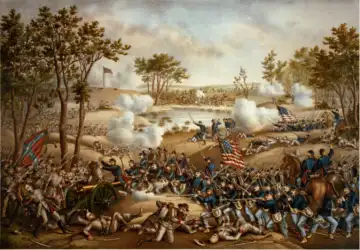
41
New cards
the growing power of poor Southern Whites who resisted planter dominance and sought to abolish slavery
Historians have argued that all of the following were causes of the Civil War EXCEPT
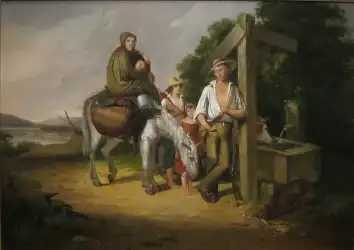
42
New cards
Madison
father of the constitution
43
New cards
Washington
father of the nation
44
New cards
Jefferson
father of declaration of independence
45
New cards
Jackson
father of democratic party
46
New cards
Polk
won war against mexico 1848
47
New cards
taylor
captured mexico city later president
48
New cards
Paris
treaty ends american revolution
49
New cards
ghent
treaty ends 1812 war
50
New cards
adams onis
treaty brings in florida
51
New cards
william henry harrison
first whig president
52
New cards
william harrison
won tippecanoe and thames battles in 1812 war
53
New cards
Baltimore ft mchenry, new orleans
US wins in war of 1812
54
New cards
conn. compromise, great compromise
constitutional compromise that gave us our bicameral legislature
55
New cards
3/5 compromise
constitutional compromise that gave counting slaves as less than a person
56
New cards
tertiary
Before European arrival, Native American settlement patterns were NOT....
57
New cards
sugar islands
In what agricultural industry/geographic area did the Spanish and Portuguese use African slaves?
58
New cards
Land bridge from Eurasia to North America
How did the first Americans get to the North American continent?
59
New cards
interdependent economic system
What was the Columbian Exchange?
60
New cards
Disease, Indian Raids, starvation (all of the above
What challenges did Jamestown face in their early years?
61
New cards
Christians
Who did Maryland's Act of Toleration (1649) apply to?
62
New cards
self government
What was the purpose of the Mayflower Compact?
63
New cards
God’s law
What did Puritans believe the purpose of government was?
64
New cards
Individualist and Indepent
\n Describe the origins and reputation of the Rhode Island colony:
65
New cards
white servants
Where did Chesapeake colonies acquire most of the labor they needed in the 1600s?
66
New cards
planters began to use slaves over indentured servants
What were the results of Bacon’s Rebellion?
67
New cards
evil spirits within people
What social/religious changes in Massachusetts caused the Salem witchcraft trials?
68
New cards
cattle and grain
What was the economic basis of the Northern Colonies?
69
New cards
emotion and fear to scare them
What tactics did Great Awakening/ New Light preachers use?
70
New cards
rice and indigo
What was the economic basis of the Southern Colonies?
71
New cards
control of the ohio river valley
What did Britain and France clash over (1754-1800)?
72
New cards
Prohibited colonial settlement west of Appalachian mountains
What is the purpose of the Proclamation of 1763?
73
New cards
pay for the military
Why did the British Parliament pass the Stamp Act?
74
New cards
explain to the rest of the world why they revolted
What was the purpose(s) of the Declaration of Independence?
75
New cards
Consent of the Governed
How did Thomas Paine believe that all government officials should gain their authority?
76
New cards
Could not enforce taxes
What was the greatest weaknesses of the Articles of Confederation?
77
New cards
Showed the need for a strong central government
What was the impact of Shays Rebellion?
78
New cards
France
Who was America’s first alliance with?
79
New cards
A republican form of government is possible
What did The Federalist Papers argue?
80
New cards
based on population
How did the Virginia Plan determine representation in the House and Senate?
81
New cards
decrease foreign trade
Which was NOT a feature of Hamilton's economic program?
82
New cards
Warned against lasting political alliances
What did Washington discuss in his Farewell Address in 1796?
83
New cards
William Seward
Secretary of State who was responsible for purchasing Alaskan Territory from Russia. By purchasing Alaska, he expanded the territory of the country at a reasonable price.
84
New cards
frontier thesis
The argument by Frederick Jackson Turner that the frontier experience helped make American society more democratic; emphasized cheap, unsettled land and the absence of a landed aristocracy.
85
New cards
Chief Joseph
Leader of Nez Perce. Fled with his tribe to Canada instead of reservations. However, US troops came and fought and brought them back down to reservations
86
New cards
Transcontinental Railroad
Railroad connecting the west and east coasts of the continental US
87
New cards
New south
Optimistic phrase white Southerners used to describe the post-Reconstruction South, reflecting the South's development of a new system of race relations based on segregation and white supremacy and pointing to a profound economic transformation that swept across the region.
88
New cards
compromise 1877
Resolution of the disputed presidential election that handed victory to Republican Hayes over Democrat Tilden. Democrats agreed to the deal in exchange for patronage and the removal of federal troops from the south.
89
New cards
Mississippi Plan (1875)
Campaign of violence and intimidation waged by armed groups of whites closely allied with the Democratic Party that drove Republicans from power in the state elections of 1874. Copied by other Southern states.
90
New cards
reconstruction amendements
13th: abolished and continues to prohibit slavery and involuntary servitude, 14th: provided citizenship and equal protection under the law to freedmen, 15th: prohibits each government in the United States to prevent a citizen from voting based on their race
91
New cards
Civil rights act 1866
Passed by Congress on 9th April 1866 over the veto of President Andrew Johnson. The act declared that all persons born in the United States were now citizens, without regard to race, color, or previous condition.
92
New cards
Wade-Davis Bill (1864)
Radical Republican plan for Reconstruction that required 50% of a state's 1860 voters to take an "iron clad" oath of allegiance and a state constitutional convention before the election of state officials; pocket-vetoed by Lincoln.
93
New cards
Freedmen's Bureau
Organization run by the army to care for and protect southern Blacks after the Civil War
94
New cards
10% Plan/Presidential Reconstruction
Lincoln made this and it said when 10% of the the voters of a Confederate State pledged allegiance to the Union, that state would be readmitted into the US
95
New cards
Sherman’s march to the sea
The 285-mile "scorched earth" campaign of General William T. Sherman across Georgia in late 1864 and early 1865. Sherman's soldiers seized or destroyed $100 million in goods, hurting Southern morale and depriving the Confederate army of supplies.
96
New cards
Copperheads
A group of northern Democrats who opposed abolition and sympathized with the South during the Civil War
97
New cards
Border states
States bordering the North: Delaware, Maryland, Kentucky and Missouri. They were slave states, but did not secede.
98
New cards
special field order 15
Order by General William T. Sherman in January 1865 to set aside abandoned land along the southern Atlantic coast for forty-acre grants to freedmen; rescinded by President Andrew Johnson later that year.
99
New cards
Gettysburg address(1863)
Abraham Lincoln's oft-quoted speech, delivered at the dedication of the cemetery at Gettysburg battlefield. In the address, Lincoln framed the war as a means to uphold the values of liberty.
100
New cards
Draft Riots
Conscription Act in 1863 forced men between 20-45 years old to be eligible for conscription but one could avoid it if they paid 300 or got someone in their place; provoked anger from poor workers